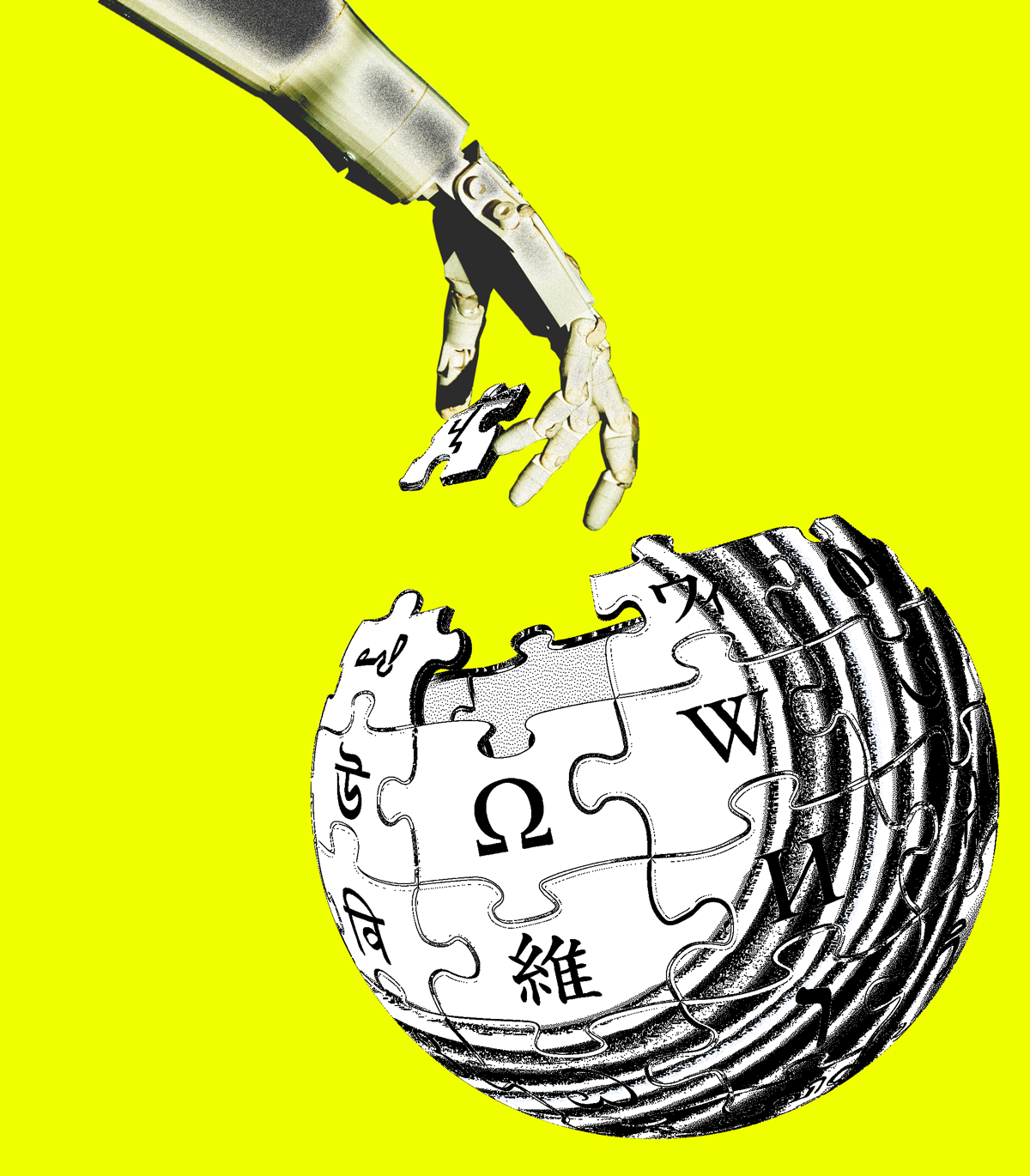AI is mining the sum of human knowledge from Wikipedia. What does that mean for its future?

🌈 Abstract
The article discusses the impact of the rise of generative AI, such as ChatGPT and Google AI Overview, on Wikipedia, the world's largest repository of human knowledge. It explores the potential challenges and opportunities this presents for Wikipedia, including:
🙋 Q&A
[01] The Impact of AI on Wikipedia Traffic
1. What are the Wikimedia Foundation's metrics for tracking visits to Wikimedia websites?
- Page views: the amount of users visiting Wikimedia projects and reading articles online
- Unique devices: the amount of distinct devices visiting Wikipedia in a given time period
- Clicks and impressions through Google search, another proxy for visits
2. Has traffic to Wikipedia been affected by generative AI tools?
- The Wikimedia Foundation has not seen a significant drop in traffic on Wikimedia websites that can be directly attributed to the current surge in AI tools.
3. How does the Wikimedia Foundation view the impact of AI on Wikipedia?
- The Wikimedia Foundation sees the new surge in AI as a tremendous opportunity to help scale the work of the global volunteer community that creates and curates content on Wikipedia.
- However, they are concerned about the potential impact these AI tools could have on the human motivation to continue creating and sharing knowledge on Wikipedia.
[02] Maintaining the Volunteer Community
1. How does the Wikimedia Foundation aim to address the potential disconnect between where knowledge is generated (Wikipedia) and where it is consumed (AI tools)?
- The Wikimedia Foundation believes it is crucial for AI applications to credit the human contributions they rely on, as this helps keep the cycle of participation on Wikipedia going for generations.
- They are exploring opportunities to reach future audiences of knowledge seekers and contributors, including on generative AI platforms, to understand how to maintain and grow the human-created knowledge.
[03] Wikimedia Enterprise and Partnerships
1. How does the Wikimedia Enterprise program work?
- Wikimedia Enterprise is an opt-in, paid product for commercial enterprises that want to reuse content from Wikipedia and other Wikimedia projects at a high volume.
- It allows them to reuse content in a way that aligns with their business models and provides more people access to free knowledge, while also contributing to the financial sustainability of Wikipedia and other Wikimedia projects.
2. How much does Wikimedia Enterprise contribute to the Wikimedia Foundation's revenue?
- According to the Wikimedia Enterprise Financial report 2022-23, the total revenue for Wikimedia Enterprise for FY 2022-23 was $3.2 million, representing 1.8% of the Wikimedia Foundation's total revenue for the period.
[04] Leveraging AI to Support Volunteers
1. How do Wikipedia and its volunteers leverage AI?
- Volunteers use specialized AI/ML tools to support their work, especially on time-consuming and redundant tasks, while ensuring that the tools are used responsibly and transparently.
- The Wikimedia Foundation is also creating a new generation of AI models to increase the capacity of volunteers and develop algorithms to measure article quality and detect vandalism.
[05] Overall Impact of Generative AI on Wikimedia
1. How does the Wikimedia Foundation view the overall impact of generative AI trained on Wikipedia content?
- The Wikimedia Foundation sees both opportunities and challenges in the rise of generative AI.
- They welcome the use of Wikipedia content to train AI models, but urge AI companies to use Wikimedia's free APIs responsibly and include recognition and reciprocity for the human contributions.
- The Wikimedia Foundation aims to ensure the continued growth and maintenance of the human-created knowledge that is used to train these AI models.